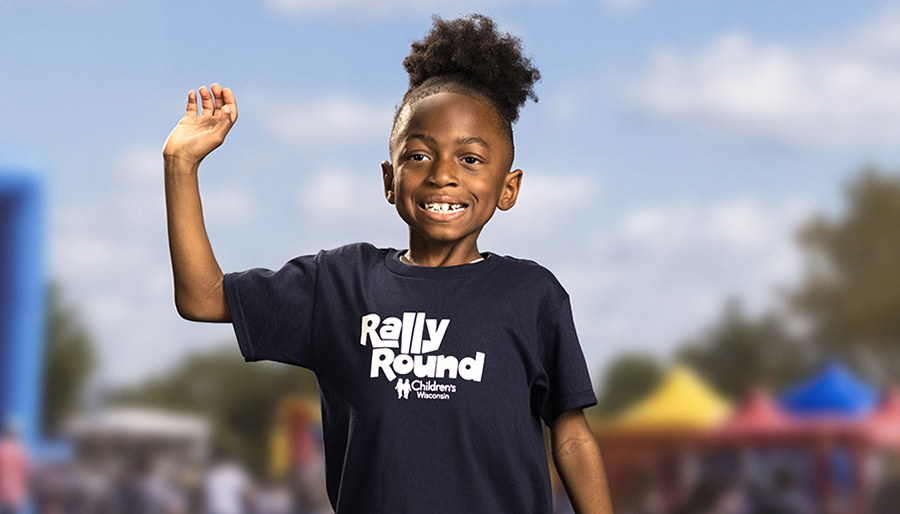As we kick off the official start of summer, we are reminded of how much the season is often filled with celebrations, family gatherings, playing with friends and plenty of fun outdoor activities. However, summer’s arrival this year comes with news of a continuing local and national trend of increasing gun violence, serving as a hard reminder of an ongoing threat to Wisconsin’s children. June is National Gun Violence Awareness Month, raising awareness of the issue that has been appropriately labeled a national public health epidemic. Firearm-related injuries became the leading cause of death for children and teens nationwide in 2020. In my 14 years at Children’s Wisconsin, nothing has shocked me quite like the increase in the number of children we have cared for with gunshot wounds. In fact, the number of children we treated due to gunshot wounds each year more than doubled from 2019 to 2022, jumping from 47 to 123.
The harm gun violence inflicts goes well beyond those injured or killed. The trauma of gun violence ripples across families, friends and communities. This type of violence isn’t just a single moment or act — it’s one of the most complex epidemics we face. We know there is much work to be done on this complicated issue. And, I want to take this month as an opportunity to reflect on the work our teams do every day to face it, and support our kids and communities.
At Children’s Wisconsin, our teams are driven by a desire to prevent harm to kids. That includes doing all we can to protect them from gun violence. We understand it is not enough to be exceedingly good at treating the immediate result of violence — the physical wound or psychological trauma. It’s our vision for Wisconsin’s kids to be the healthiest in the nation, and to reach that goal we must protect kids from violence before it happens.
Our Emergency Department and Trauma Center, Project Ujima and Community Health teams all come to mind when thinking about our work to reduce gun violence and support healing from the trauma it causes. Our teams are supporting more kids and families than ever — helping them heal physically, mentally and emotionally. Project Ujima supported 121 people impacted by firearm violence in 2019. That number grew to 329 in 2022. That team continues to expand and provide more and more families with comprehensive support. Their work is essential in addressing this epidemic.
Beyond caring for kids and their families after they experience gun violence, the teams at Children’s Wisconsin are conducting research, creating programs to help families safely store firearms, providing education and speaking out about the issue at conferences and in the community. Our teams have worked to make interventions accessible to everyone. This includes healthy ways to process trauma, mentoring, grief support, and resources for housing, food, education and health care. These interventions can help break the cycle of violence for many and prevent kids from coming to our Emergency Department. I am proud of all of our teams’ work.
We can learn from, and lend our voices to, other efforts to address this epidemic. Our colleagues at Northwell Health have created a Center for Gun Violence Prevention. As a member of their National Health Care CEO Council on Gun Violence Prevention and Safety, I’m working with other organizations like ours to understand how we can have a bigger impact on this crisis. We are talking about, looking for and implementing interventions to prevent kids from experiencing violence.
I encourage everyone to continue paying attention to this important issue and want to reiterate our commitment to advancing solutions to address gun violence in our communities. Consider intervention programs you can get involved with, how you can encourage safe storage of firearms in homes, and who in your life may need a safe space to express themselves. Each of us has a role to play in improving our community. By working together, we can provide a safer and healthier community for our kids.
If you, your family or a family you care for are looking for help, call Project Ujima at (414) 266-2557.
Milwaukee's Office of Violence Prevention also recommends these resources for free support:
Sojourner Family Peace Center's domestic violence shelter and support: (414) 933-2722
414Life outreach and conflict mediation support: (414) 439-5398
Milwaukee County's 24-Hour Mental Health Crisis Line: (414) 257-7222
Milwaukee's Child Mobile Crisis and Trauma Response Team: (414) 257-7621
National crisis text line: text HOPELINE to 741741 to text with a trained crisis counselor
National Suicide Prevention Hotline: (800) 273-8255







